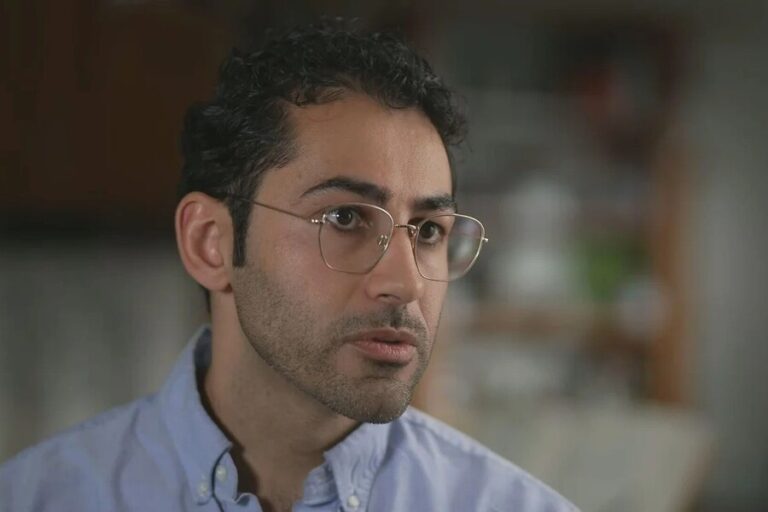In his first national television interview since being released from federal detention, Columbia University student activist Mohsen Mahdawi spoke defiantly from Vermont, telling CBS News, “You will not silence me.” The 28-year-old Palestinian-born green card holder was detained by immigration authorities last month under a controversial and rarely used national security statute, sparking outrage among civil rights groups and student protesters nationwide.
Mahdawi’s arrest came during what was supposed to be a routine U.S. citizenship interview. Instead of leaving with a naturalization certificate, Mahdawi said he was unexpectedly detained by immigration agents after completing his test and signing a pledge to uphold the U.S. Constitution. “I’ve done everything the right way. I showed up for my interview. I answered all the questions honestly,” Mahdawi said. “This is a betrayal of the Constitution and the very values I was pledging to protect.”
A Symbol of Escalating Crackdown on Campus Protesters
Mahdawi, a prominent voice in the pro-Palestinian student movement at Columbia University, has become one of several student activists detained this year amid heightened tensions surrounding U.S. policy in the Middle East. Fellow Columbia student Mahmoud Khalil and Tufts University’s Rumeysa Ozturk were also detained under the same law—one that permits revoking visas if an individual is believed to pose “adverse foreign policy consequences.”
All three have pushed back through legal avenues. In Mahdawi’s case, a federal judge last week ordered his release after two weeks in custody, citing credible claims that the detention may have been in retaliation for exercising his First Amendment rights.
U.S. District Judge Geoffrey Crawford wrote that Mahdawi had “made substantial claims that his detention is the result of retaliation for protected speech,” ordering his release pending further review of a habeas corpus petition. An appeals court is now set to review the cases of Mahdawi and Ozturk on Tuesday.
Defiance and Allegations of Retaliation
In his post-release interview, Mahdawi said he believes the Trump administration is trying to silence dissent through fear and intimidation. “There is this philosophy of punitive justice,” he told CBS News. “I am not afraid of you,” he declared in remarks to supporters just days after his release.
He said he remains committed to peaceful activism and insists he has never advocated for violence. “I am a peacemaker,” Mahdawi said. “And when they arrested me, that is a red flag to everybody.”
Senator Marco Rubio and others have called for Mahdawi’s deportation, accusing him of threatening pro-Israel demonstrators and inciting antisemitic rhetoric. But Mahdawi has denied these claims, saying he has explicitly condemned antisemitism within the movement. CBS obtained footage from a November 2023 protest in which Mahdawi is seen reprimanding a participant for an antisemitic comment, chanting “shame on you” to publicly denounce the statement.
“We made it very clear that our movement is about justice, and antisemitism has no place in our movement,” Mahdawi reiterated.
Trump Administration’s Justification and Legal Debate
In a statement issued last month, Department of Homeland Security Assistant Secretary Tricial McLaughlin said that immigration status is a privilege, not a right. “When you advocate for violence, glorify and support terrorists that relish the killing of Americans, and harass Jews, that privilege should be revoked,” she said.
Mahdawi, however, argues that the use of this rationale against him is baseless and politically motivated. “A person who has been vocally advocating for justice and peace is undermining U.S. policy?” he questioned.
What’s Next for Mahdawi and Other Student Activists?
The legal battle is far from over. While Mahdawi has been released, his immigration status remains in question, and a federal court will continue reviewing whether his detention violated constitutional protections. Khalil and Ozturk remain in custody and are awaiting the results of their appeals.
Mahdawi says he is undeterred. “I wasn’t afraid when they detained me. I was not afraid when I got out of detention. And I’m not afraid to share my voice,” he said.
Despite stepping back from campus protests before demonstrators erected encampments and occupied university buildings, Mahdawi affirmed that he will continue speaking out. “I was reassured in my heart of the belief that justice will prevail,” he said. “The justice system is functioning.”
Why This Matters
The Mahdawi case highlights a growing tension between immigration enforcement, national security concerns, and the rights of non-citizens to engage in political speech. With student-led movements becoming a flashpoint in the national conversation about the Middle East and civil liberties, Mahdawi’s story is likely to reverberate well beyond Columbia’s campus.
Do you want this story formatted for publishing on a blog or news site (HTML or WordPress style)?
